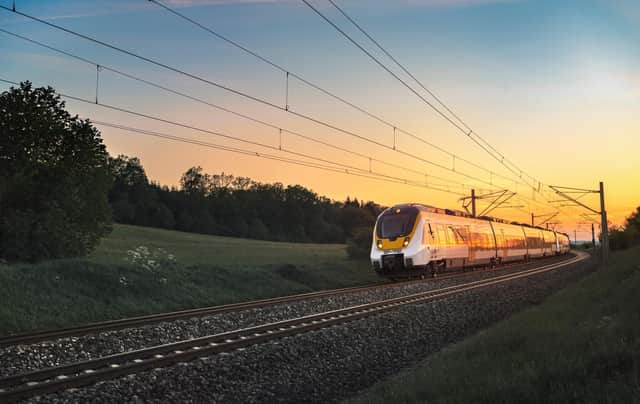Going Green: We need to invest to future proof our railways


Our journey time doubled as we were diverted onto slower trains that stopped in every station and had a speed limit on them of 50 miles per hour because of high winds. I had used my family railcard and we were able to read and snack on board so I don’t regret opting for the train over our car, especially as disruption on the roads is even more common.
But my experience will be all too familiar to many leisure travellers and commuters. Just last month, Storm Isha caused issues with Avanti West Coast, Trans Penine Express, LNER, Cross Country and Scot Rail.
Advertisement
Hide AdAdvertisement
Hide AdIt’s not just recent storms either. Storm Henk on January 2nd bought widespread rail disruption too and many of us remember the 2018 storm that breached the sea wall at Dawlish and left the track hanging over the waves.
Now Network Rail has issued a warning that the mostly Victorian built rail network simply can’t cope with the weather events caused by climate change.
Martin Frobisher, group safety and engineering director at Network Rail, told the Financial Times: 'We're definitely seeing the impact of climate change. It's happening now, it's real, and it is having a significant impact.'
Chair of the National Infrastructure Commission, Sir John Armitt said last year, the UK must spend money on the railways to cope with the disruptions caused by climate change.
Advertisement
Hide AdAdvertisement
Hide AdSir John said leaders – himself included – may have previously "underestimated the impact of climate change and the rate at which we're seeing those changes".
With a 20,000 mile network of railways to maintain that’s a serious issue that requires serious investment to sort.
Network Rail also states: 'More frequent and more extreme weather conditions caused by climate change will impact our ability to run the railway safely and on time.'
But it’s not just high winds, storms and trees on tracks across the country. The heatwaves of last summer caused widespread issues on the rail network as tracks buckled in the heat.
Advertisement
Hide AdAdvertisement
Hide AdWhen the rains come after a period of hot, dry weather, the ground doesn’t absorb the water which can cause flooding which can affect tracks too.
Last year I was on a train which seemed inches above flood water when the conductor made a joke about our life jackets being stored under our seats.
He was joking and he did make everyone in the carriage laugh but the reality is Network Rail, like all infrastructure owners, has its work cut out to figure out how to invest to future proof our great British railways so we can all let the train take the strain without disruptions and delays.